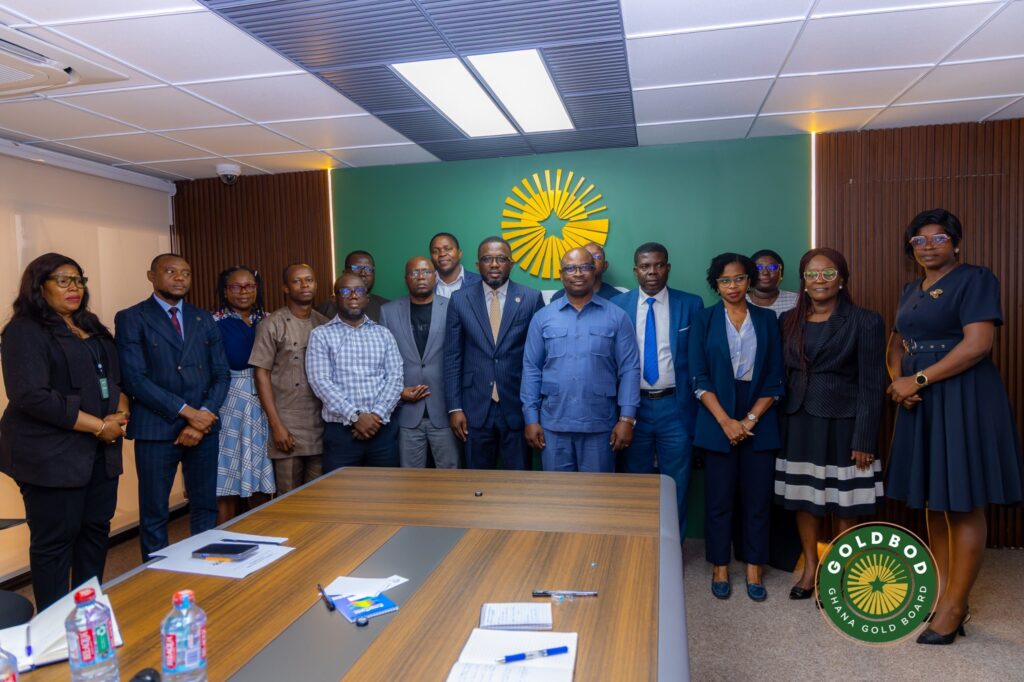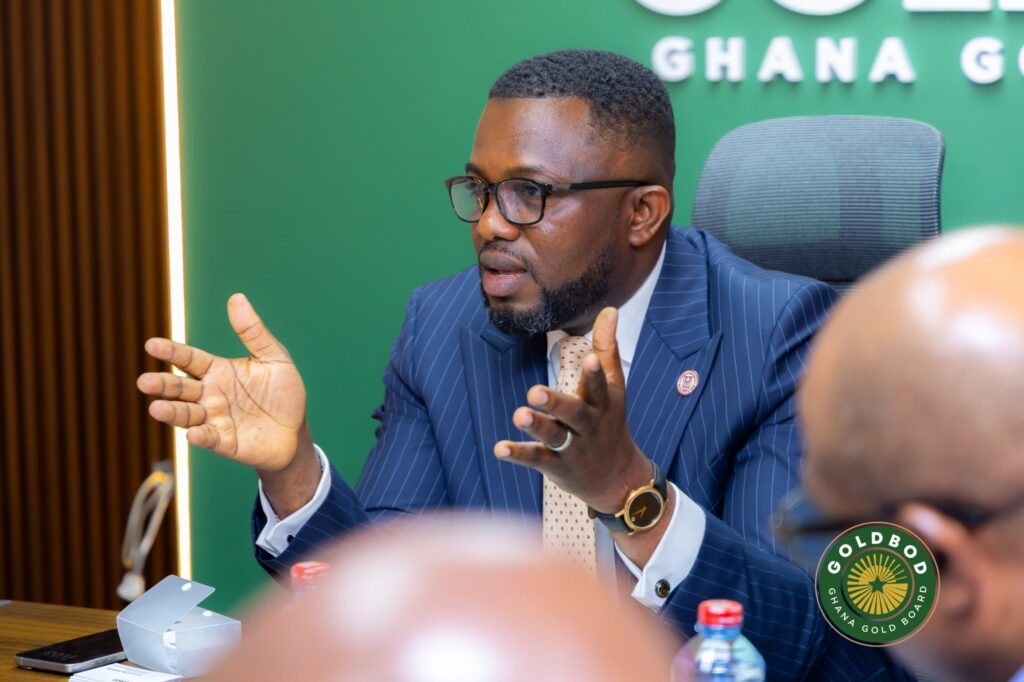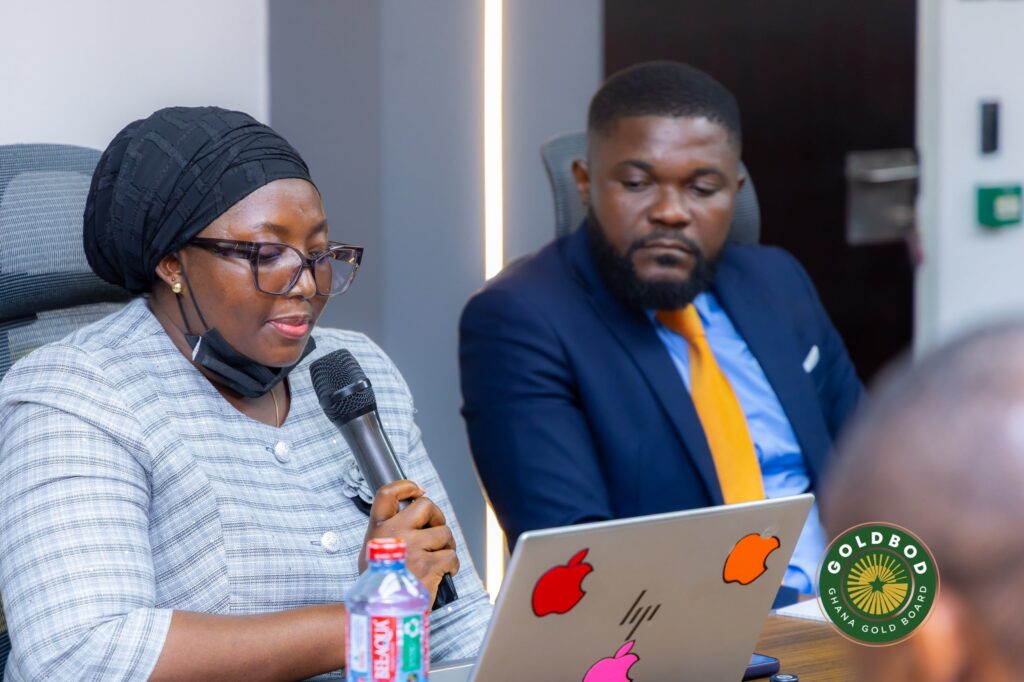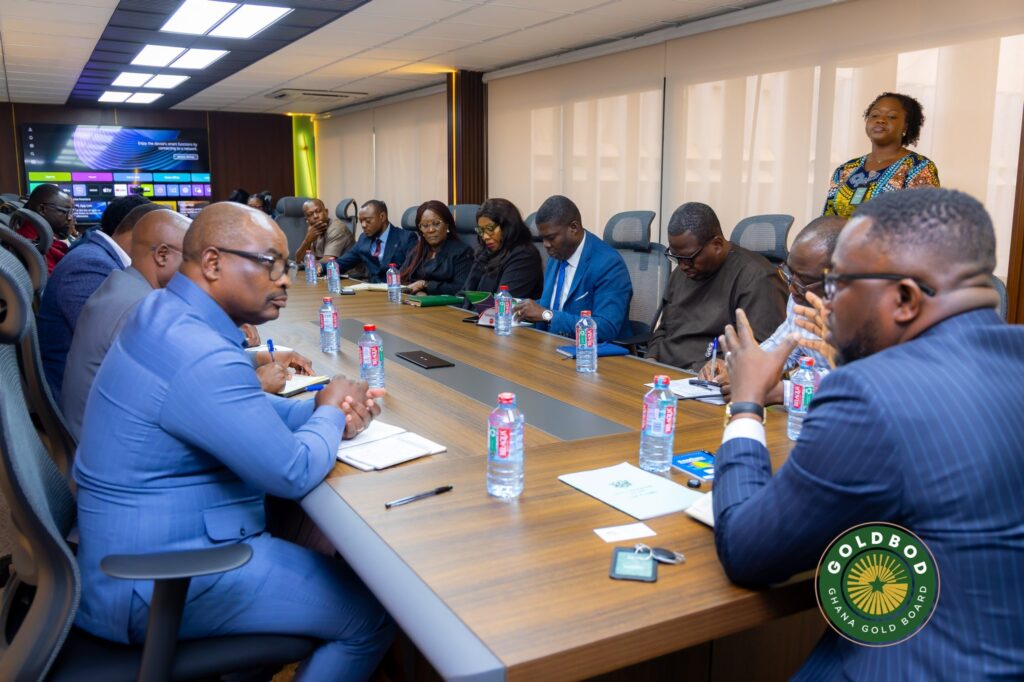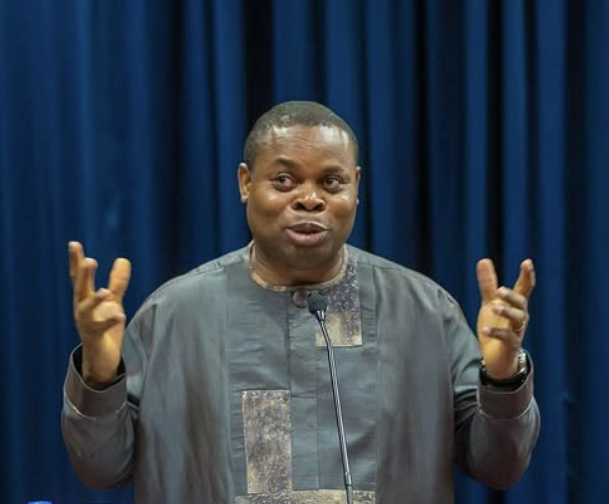A high-level delegation from Kimberly Process management in Mozambique has concluded a two-day study visit to Ghana, seeking to learn from the country’s experience in establishing and managing institutions that regulate gold trading and certification.
Kimberly Process management is a government institution under the Ministry of Mineral Resources and Energy responsible for ensuring the legality of rough diamonds, precious metals, and gems in Mozambique.
The exchange programme focused on the work of the Ghana Gold Buying and Distribution Company (Goldbod), which has become a central player in the nation’s mineral economy.
Welcoming the delegation, Richard Nunekpeku Esq. Deputy Chief Executive Officer of Goldbod, offered an overview of the agency’s regulatory framework and operations.
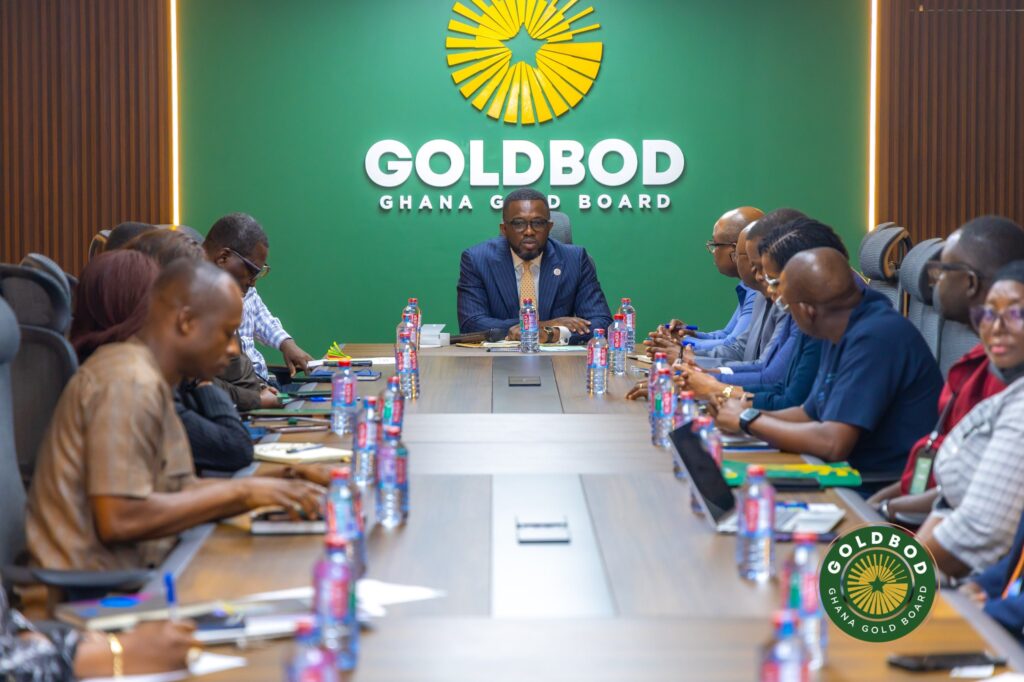
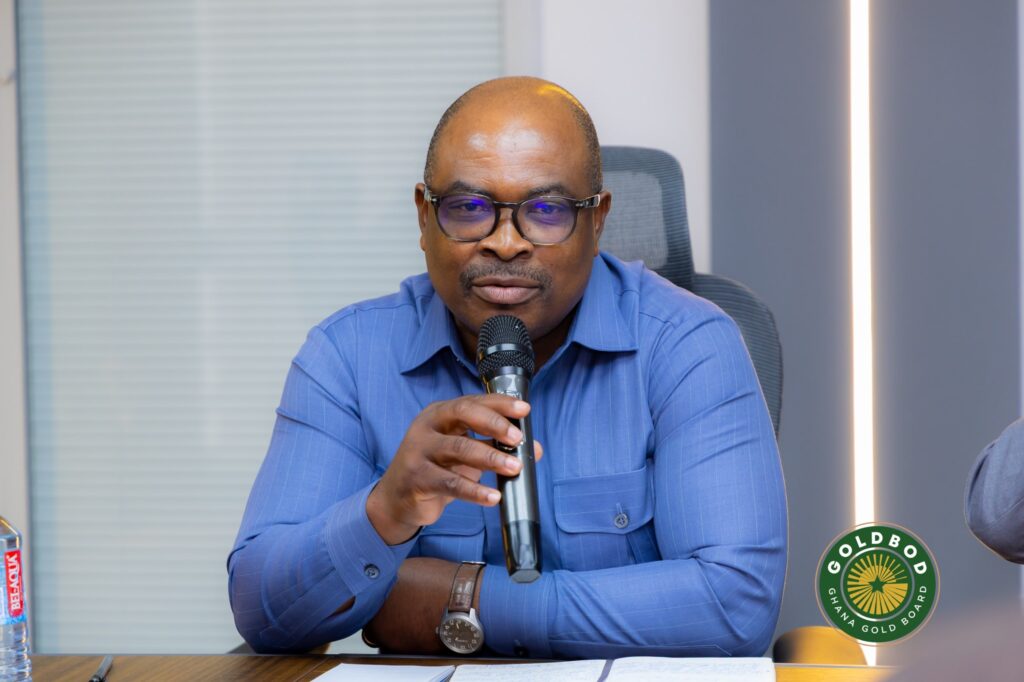
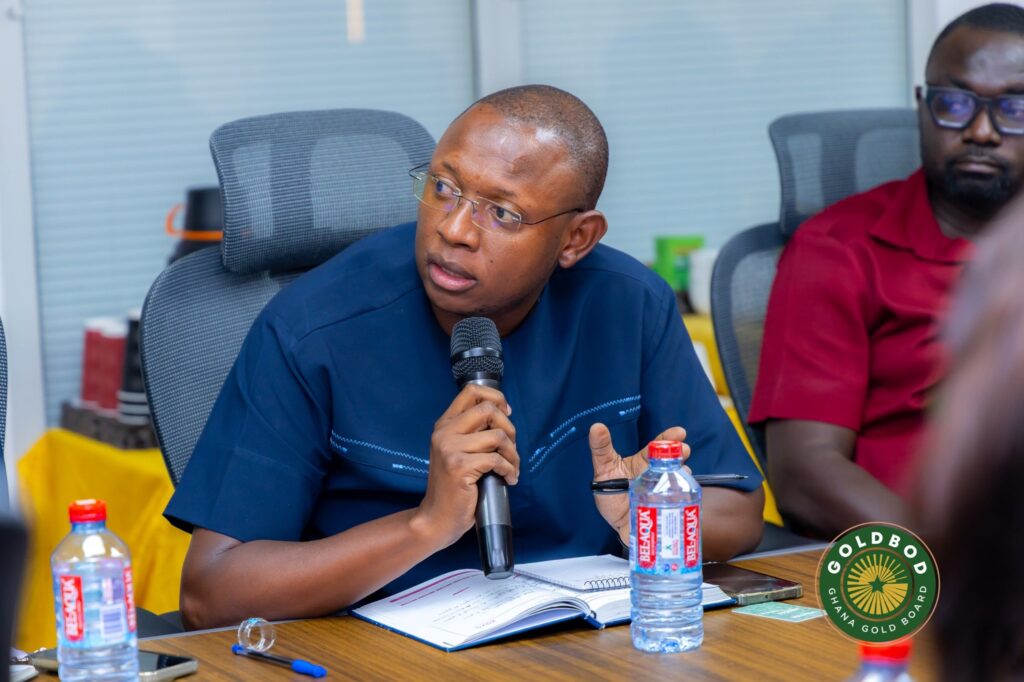
He explained that Goldbod, established as part of government’s reforms in the mineral sector, now holds exclusive responsibility for buying, selling, and assaying gold in Ghana.
“Goldbod was created with clear objectives. Our primary role is to ensure that Ghana’s gold and other precious minerals are fully leveraged to strengthen the foreign exchange regime and to support the accumulation of gold reserves by the Bank of Ghana,” He said.
He also highlighted a major innovation in the sector: The introduction of a traceability system that will begin operation in November, aimed at boosting transparency and accountability in gold transactions.
During the meeting, Mr. Nunekpeku gave detailed insight into Goldbod’s operational processes, particularly the Self-Financing Aggregator License.
The license, he explained, allows holders to trade directly with foreign entities, but with strict oversight.
“All monetary transactions between buyers and sellers are conducted through Goldbod and the Bank of Ghana, which undertakes thorough due diligence before any business transaction begins,” he noted.
The Mozambican officials, who are seeking to build similar regulatory structures in their country, engaged Goldbod officials on various aspects of mineral governance.
Responding to concerns raised by one of the delegate about conflict resolution in mining communities the Deputy CEO said many disputes stem from inadequate consultation with traditional leaders and district assemblies before mining licenses are issued.
He clarified, however, that Goldbod’s regulatory remit is limited.
“Our mandate is strictly focused on gold trading.
Licensing and other upstream activities in the mining value chain remain the responsibility of the Minerals Commission of Ghana,” he added.
The visit forms part of broader South-South cooperation efforts in Africa’s extractive sector.
For the Mozambican delegation, Ghana’s experience offers a practical blueprint for balancing regulation, revenue generation, and community engagement in a vital industry.
